6 ways to make your garden more eco-friendly
shop.mycottagegarden.de
Looking for ideas to make your outdoor space more sustainable? Here are six eco-friendly ways to make a difference
From laying paths to planting seeds, the way we design, grow and style our gardens can have an impact not just on local wildlife but on the planet and its resources as a whole. That’s why simple steps are important, whether that’s ditching plastic plant pots or encouraging bees and butterflies by letting a section of your lawn grow long, to create a low-impact (and in turn often low-budget) garden.
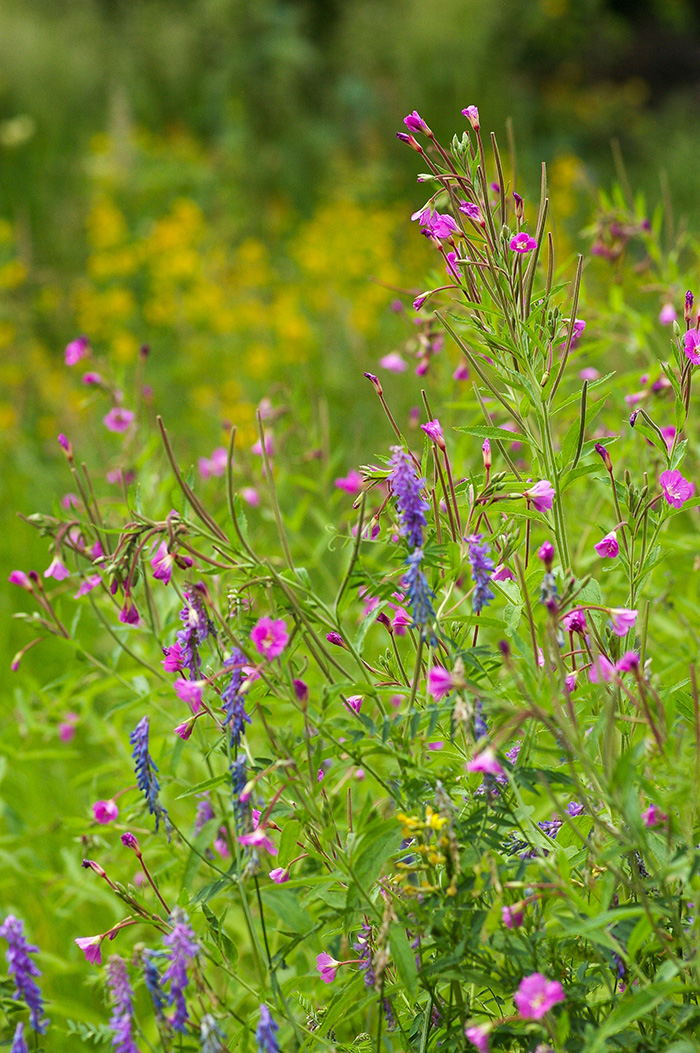
Yoksel Zok/Unsplash
Let your lawn grow wild
Wild lawns are beautiful – and increasingly popular. By leaving all or part of your lawn unmowed (except for one cut in late summer after flowering) and allowing grass and wildflowers – and yes, even weeds – to flourish undisturbed, your garden becomes a haven for wildlife of all kinds. You can sow more wildflower seeds if they don’t come naturally, or add clusters of bulbs or herbs, and either laying or mowing a winding path through the lawn ensures you can explore your beautiful wilderness easily. It may take some getting used to, but you’ll enjoy the sight of butterflies flittering in your mini meadow – and only dusting off your lawnmower once a year.
For turf and seed mixes perfect for lawns, try Wild Flower Lawns & Meadows or go to Landlife Wildflowers for native British wildflower seeds, including a flower and grasses mix. The Natural History Museum has advice for what to grow and how to maintain your meadow.
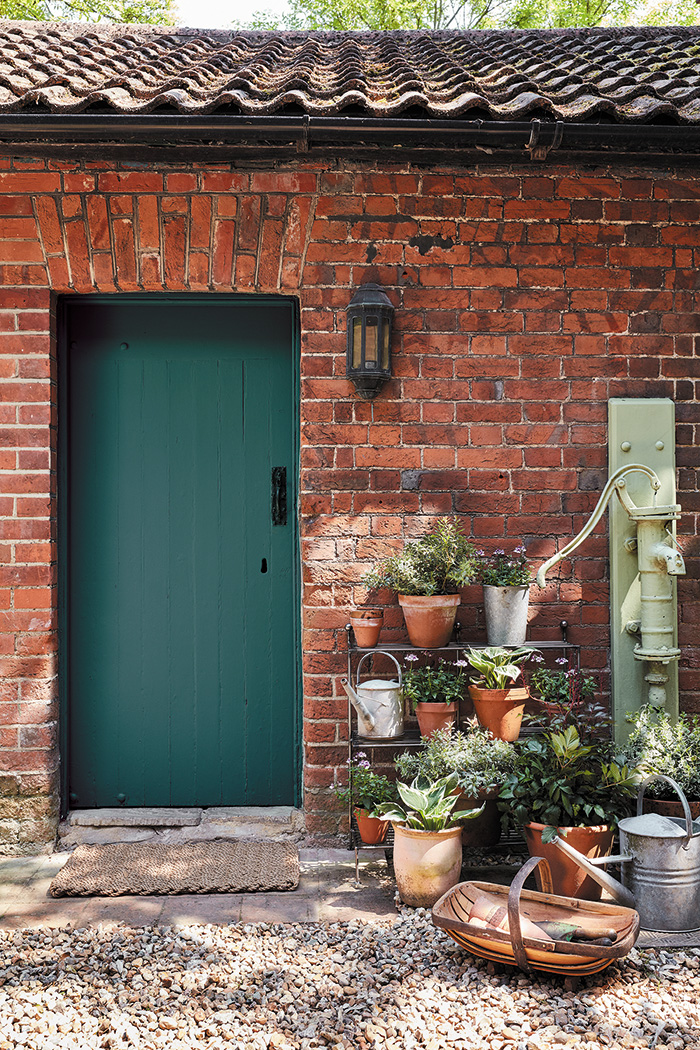
littlegreene.com
Avoid using plastic plant pots
Single-use plant pots generate lots of plastic waste, with 500 million used every year in the UK. It’s not easy to source plants not sold in plastic, but look for those in pots made from coir, such as the cottage garden plants and herbs from The Hairy Pot Plant Company. And when you do have to buy plastic-potted plants, Recycle Now tells you where to recycle them locally. Or check with your local garden centre as some (Dobbies, for example) offer a recycling service for plastic pots and trays.
When growing your own plants, go thrifty and raid your recycling box for toilet-roll tubes, yogurt pots or egg boxes to raise your seedlings. Or buy pots made from coir, cattle manure, paper pulp or bamboo fibre, some of which can be planted straight into the ground or composted when no longer usable.
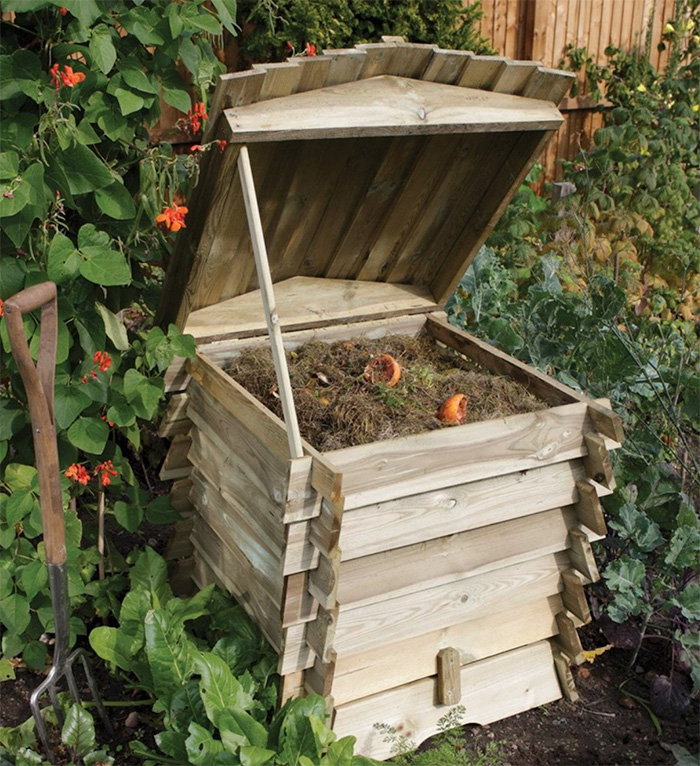
primrose.co.uk
Make your own compost
Setting up a compost bin may be the most useful and planet-friendly task you can do. Organic materials such as garden waste and veg scraps rot down in landfill releasing methane, a greenhouse gas 20 times more potent than carbon dioxide. Making your own compost means this dangerous waste is magically transformed into a valuable free resource, which also locks carbon into the soil. Get advice from the experts at Garden Organic on what to put in your compost, to ensure it breaks down quickly.
There are a wide range of options on the market, from practical plastic to stylish wooden beehive-style designs, like this one from Primrose, or you can easily make your own using corrugated iron, pallets or leftover wood from other projects.
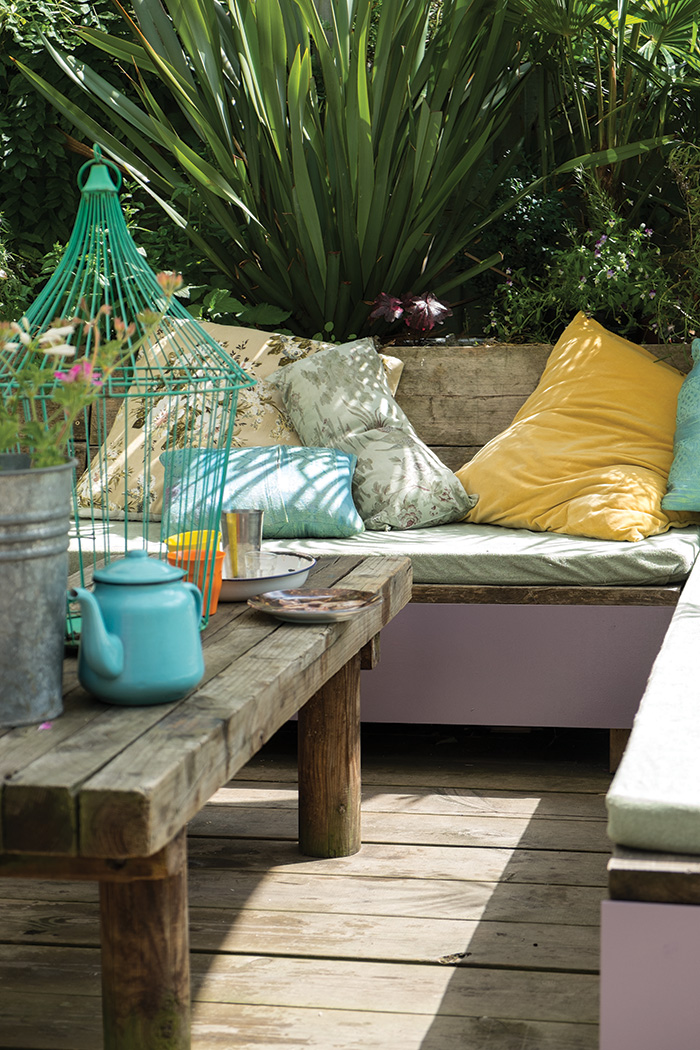
farrow-ball.com
Upcycle your furniture
Try to prolong the life of both wooden and plastic outdoor furniture for as long as possible. A wooden set can easily be freshened up with furniture oil or a stain, if you prefer a natural look. For a brighter makeover, or for more coverage, try an exterior wood paint from an eco-friendly brand, or for plastic, a proprietary spray paint. If buying new, look for furniture made from reclaimed or recycled materials – check out the garden collections at Sustainable Furniture and Modish Living. Or use salvaged wood or old pallets to create built-in seating or an outdoor kitchen. Remember too, that indoor furniture can be repurposed with exterior paint for outside use.
For antique and vintage pieces head straight to reclamation yards or garden salvage dealers. A cast-iron bistro set will last for many years with regular applications of metal paint to deter rust – although the faded elegance of a shabbier set can also look charming in the right setting.
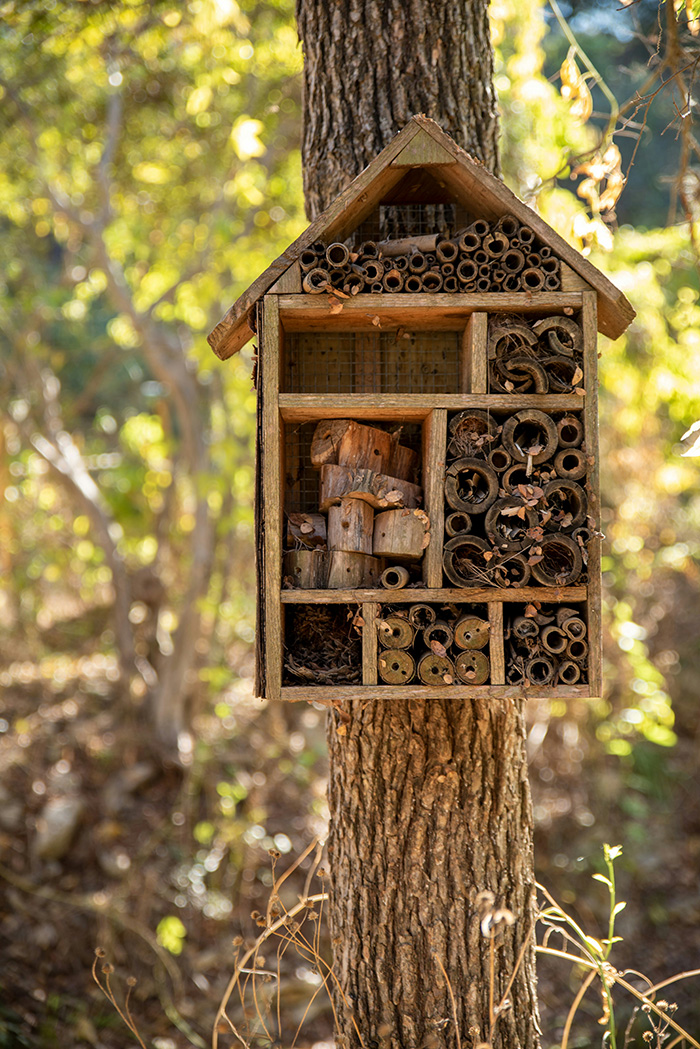
Trac Vu/Unsplash
Encourage wildlife
The UK’s gardens cover an area of land that’s larger than the Lake District and the Peak District combined, which means our back gardens add up to a huge habitat – and every one is a unique pocket of biodiversity.
Wildlife-friendly features can be attractive additions to a garden – from a beautifully landscaped (fish-free) pond for frogs and insects, to a rustic pile of logs in a little-used corner providing undisturbed lodging for insects. Nesting boxes on walls and pretty bird feeders hanging in the trees encourage feathered friends year-round, while planting a fruit tree brings a harvest for you and your wild guests. Cutting a 13cm square hole in the bottom of your fence allows free passage for foraging hedgehogs, while an unswept heap of fallen leaves and a wild nettle and weed patch will attract wildlife too.
And have a thought for pollinators when planting, choosing flowers, hedges and trees that attract bees, butterflies and other insects for a garden that’s gorgeous for you and the planet. Search on the RHS’s informative site for ‘best plants for pollinators’.
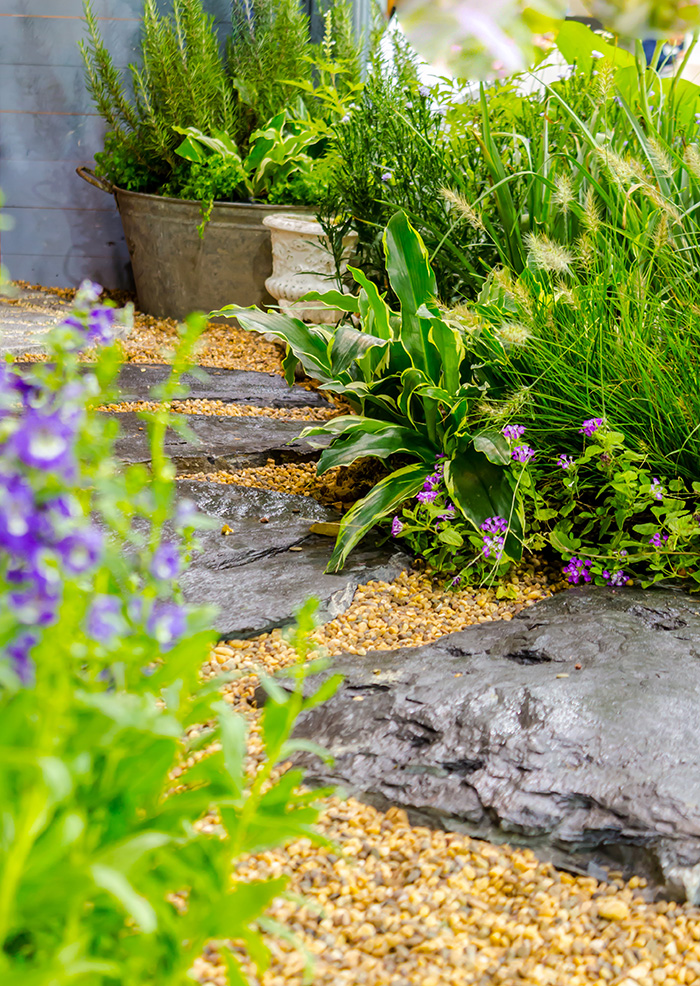
© Shutterstock
Look at landscaping
There’s a growing demand for low-maintenance gardens, with paving favoured over planting. But, collectively, this can have a negative effect on biodiversity and lead to flash flooding. The manufacture of hardscaping materials is highly industrialised too and often has a permanent impact on the planet, from quarrying stone to logging and transporting hardwoods thousands of miles.
If you’re planning a path or patio, ideally look for sustainably produced British products if you’re buying new, but the most eco-friendly materials are reclaimed. From slate, flagstones and bricks for paving and walls, reclamation yards are a great source, or try local selling sites to find materials going spare.
Woodchips are a biodegradable option for a soft, organic look, or gravel is also permeable but longer lasting. There are some interesting recycled options available now too, including composite decking produced from recycled plastic and wood made by companies like Envirobuild, or aggregates made from waste tiles (see Stone Warehouse), crushed bricks, slate chips or cockle shells.
WORDS: LINDSEY HARRAD
Before you go...
...fancy automatic entry to all future competitions?
Simply register online today for FREE and you will get:
Automatic entry to all current and future competitions.
Access to Reclaim Inspiration - an online visual pinboard for saving all your home and style inspiration.
A regular newsletter of inspiration, ideas and advice.

Save all your articles in one place
Become a Reclaim Member to save all your home and style inspiration. Simply login or register online today for FREE and you will get:
Automatic entry to all current and future competitions.
Access to Reclaim Inspiration - an online visual pinboard for saving all your home and style inspiration.
A regular newsletter of inspiration, ideas and advice.








